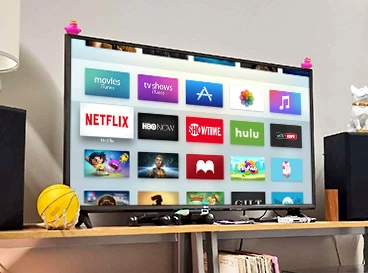

If you plan to study abroad, get ready for an adventure of a lifetime! Studying abroad is an incredible experience that will broaden your horizons, challenge your perspectives, and give you memories that will stay with you forever. But before you jump on that plane and head out, there are a few things you need to know to prepare yourself and make the most of your stay in a foreign country.
 Get Your Papers in Order
Get Your Papers in Order
If you’ve never been out of the country, you probably don’t have a passport, but you’ll need one now that you’re going abroad. Getting a passport can take several weeks to months, so apply for one at your local government or post office as soon as possible. Also, check if you need a visa for the country you’re heading to and apply for it in time too. Some countries may have additional requirements, such as vaccinations or medical exams, so make sure you have all the necessary documents before leaving. And keep copies of everything, too, just in case.
 Book Your Flight Early
Book Your Flight Early
When it comes to international travel, booking in advance is particularly important, as flights tend to fill up quickly, and prices can skyrocket closer to your departure date. The sweet spot for buying tickets is typically about two to three months before the trip, so don't wait until the last minute to book your flight. Skyscanner and Expedia are great places for comparing prices from different airlines and finding good flight deals. Also, try to be flexible with your travel dates, as flights on some weekdays, like Tuesdays or Wednesdays, are often cheaper than those on weekends.
 Research Your Destination
Research Your Destination
You probably know some things about the country you’ll be visiting, but make sure to research it thoroughly before leaving. This includes learning about its culture and customs and familiarizing yourself with practical details like the climate, transportation options, healthcare, and banking. Use online resources and guidebooks, read a novel, watch a movie, or talk to people who have visited or lived in the area to understand better what to expect. The more you know about your new home away from home, the better equipped you’ll be to navigate it and make your stay more comfortable.
 Plan Your Finances
Plan Your Finances
Studying abroad can be pricey, so you must carefully plan your finances. Before arriving in your new country, make sure you know the local currency and how much things cost. Knowing the cost of living in your host country will give you a better idea of how much you'll need to budget for things like food, transportation, and entertainment. It's a good idea to create a budget and stick to it so you don't run out of money halfway through your stay. Also, remember to let your bank know you'll be studying abroad so they don't flag your purchases as fraudulent.
 Learn the Language (or at least a few phrases)
Learn the Language (or at least a few phrases)
You might be thinking, “But everyone speaks English, right?” Wrong. While it’s true that English is widely spoken worldwide, not everyone you encounter will speak English or be fluent. And even if they are, speaking their language shows respect and can help you make new friends. So, unless you’re going to the UK or Australia, try to learn the language or at least some basic phrases before getting there. It will make your life a lot easier. Plus, it’s impressive to speak another language. Apps like Duolingo and Babbel are great ways to get started.
 Pack Smart
Pack Smart
We know it can be tempting to bring your entire wardrobe for a semester or year abroad, but trust us – you don't want to be the person lugging around a giant suitcase full of stuff you'll never use. So, pack light and stick to the essentials, like your laptop, clothes appropriate for the climate, and any prescription meds you may need. Two things you should consider bringing are comfortable walking shoes (chances are you'll be doing a lot of walking and exploring on foot) and a power adapter for your electronics (different countries have different voltages for outlets).
Now, let's talk about some things you can expect when you arrive or during your stay in your host country so you can prepare mentally.

Culture Shock
Culture shock is one of the first things you'll probably experience when studying abroad. You might think you're ready for it, but it's a different ball game when you're actually living in a new country. The food, customs, social norms and ways of life, and even the weather may be different from what you're used to, making you feel like a fish out of water for a while. But don't worry – feeling disoriented and overwhelmed at first is normal.
Tip: To help ease the transition, keep an open mind and be flexible. You'll encounter new people, ideas, and experiences everywhere you turn, and the more open you are to them, the more you'll learn and grow from your time abroad. Be willing to step out of your comfort zone, try new things, and embrace the differences that make your destination unique. After all, remember that studying abroad is a journey, and the lessons you learn will last a lifetime.

Homesickness
Homesickness is a common experience for many students studying abroad. You may miss your family, friends, and the familiar comforts of your home. However, with time, you'll likely find that you begin to form new friendships and create a sense of home in your new environment.
Tip: Stay connected with your loved ones back home while trying to embrace the new opportunities that studying abroad offers. You can do this through video calls and messaging apps. Share your experiences with them, ask for their advice and support, and keep them updated on what’s going on in your life.
Jet Lag
Another thing to keep in mind is the jet lag you’ll likely experience when you arrive in your new country. Traveling to a different time zone can wreak havoc on your sleep schedule and leave you feeling exhausted for days. And this is completely normal, but it can be very frustrating when trying to adapt to a new environment.
Tip: To minimize the effects of jet lag, try to get some rest on the plane and stay hydrated. Once you arrive, try to adjust to the local time as quickly as possible. Take a short nap if you need one, but try not to sleep too long during the day, as it can make it harder to fall asleep at night.

Language Barriers
We’ve already mentioned that learning the local language is a good idea, as language barriers are among the most common challenges students face when studying in a country where English is not the official language. And even if you’re proficient in the local language, you may encounter language barriers you didn’t anticipate, like regional dialects, expressions, or slang that can be difficult to understand at first.
Tip: One of the best ways to improve your language skills while staying in a foreign country is to immerse yourself in the language. Try to speak the language as much as possible, even if you make mistakes. The locals will appreciate your effort to learn their language.

Academic Differences
The academic system in your host country may be quite different from the one in the US. For example, some countries put more emphasis on group work or require students to take more exams throughout the semester. You may also find that the teaching style, expectations, and grading system differ from what you're used to.
Tip: Talk to your professors and advisors to understand the academic expectations and requirements. Seek out academic support resources, such as tutoring or study groups, if you need help with the coursework. You can also connect with local students to gain insight into the academic culture.
 Another thing you should consider doing before going on your study abroad trip is to protect your belongings with personal property insurance. Don’t risk losing your phone, laptop, camera, or other valuables to accidental damage, theft, or other potential incidents while you’re far away from home. NSSI can provide coverage for your things no matter where they are, so get an NSSI college student property insurance quote today, protect your belongings, and enjoy your big adventure abroad!
Another thing you should consider doing before going on your study abroad trip is to protect your belongings with personal property insurance. Don’t risk losing your phone, laptop, camera, or other valuables to accidental damage, theft, or other potential incidents while you’re far away from home. NSSI can provide coverage for your things no matter where they are, so get an NSSI college student property insurance quote today, protect your belongings, and enjoy your big adventure abroad!






 Whether you’re living on campus or studying abroad, NSSI has you covered! From spilling coffee all over your laptop to dropping your smart phone in the parking lot, you’re covered wherever you go.
Whether you’re living on campus or studying abroad, NSSI has you covered! From spilling coffee all over your laptop to dropping your smart phone in the parking lot, you’re covered wherever you go.  Did you know that NSSI covers more than just electronics? We cover everything from clothes to textbooks, even jewelry. So whether you accidentally flushed your great- grandmother’s ring or your roommate ran over that expensive business textbook, we’ve got you covered.
Did you know that NSSI covers more than just electronics? We cover everything from clothes to textbooks, even jewelry. So whether you accidentally flushed your great- grandmother’s ring or your roommate ran over that expensive business textbook, we’ve got you covered. Do accidents seem to follow you wherever you go? Don’t worry, we can help! At NSSI we offer unlimited claims on damages to your personal property. Whether it’s a shattered laptop or a flattened smartphone, we’ve got you covered.
Do accidents seem to follow you wherever you go? Don’t worry, we can help! At NSSI we offer unlimited claims on damages to your personal property. Whether it’s a shattered laptop or a flattened smartphone, we’ve got you covered.  Got a dog that lives to destroy furniture? With coverage from NSSI, you can protect your personal property and enjoy your furry friends too. Our plans includes coverage for accidental pet damage.
Got a dog that lives to destroy furniture? With coverage from NSSI, you can protect your personal property and enjoy your furry friends too. Our plans includes coverage for accidental pet damage. 
